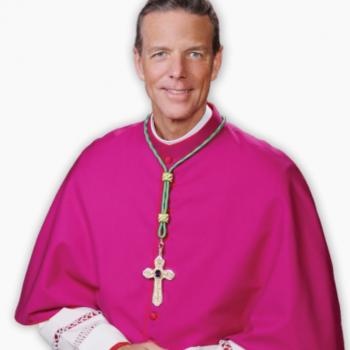Editors' Note: This article is part of the Patheos Public Square on the Future of Faith in America: Progressive Christianity. Read other perspectives here.
A recent Pew poll showing a sharp decline in Christians has left atheists crowing about the demise of religion and denominational leaders worrying about the future of Christianity. What these poll numbers really reveal is a national yearning for the more social justice and compassion-centered Christianity espoused in progressive Christian communities. Progressive Christians need to reclaim and invest in our voice: the world is hungry for our message.
Millennials, to use an old Indigo Girls song title, are Nomads, Indians, and Saints. They may not be serious about institutional commitment, but they are serious about real faith, sometimes more serious than their elders. As Nomads, they do not feel obligated to stick with the institutions adored by a previous generation; as Indians, they seek ancient spiritual practices like centering prayer that take them deeper and emphasize the mystical; and as Saints, they seek communities that model saint-like commitment to the social justice teachings of Christianity. Many are actively looking for a community in which to practice these values; they simply don't know where to find one.
We see evidence of this hunger not only in previous polls but in the popular response to Pope Francis whose appeal extends beyond Catholics to all Christians and all faiths. This pope, who rejects the fancy trappings of papal life and washes the feet of people rejected by society, is feeding a deep spiritual hunger for authenticity and true commitment to the prophetic teachings of the tradition. While challenging world leaders in no uncertain terms to address pressing world problems, the pope also gets to the heart of the spiritual crises at the root of growing economic inequality and environmental degradation.
Many young people are leaving churches behind as they leave home — often in reaction to the bigoted, judgmental Christianity they experienced growing up. Other young Christians grew up in more secular leaning mainline churches and are now seeking communities that emphasize both spirituality and social justice. While these two groups rarely darken the doors of a church that has become intolerant and politicized or spiritually dead, as young adults they continue to seek and define their spirituality outside of organized religion. Many observe that Millennials are spiritual, but not committed to religious institutions. I would add that if we build the kind of communities that meet their spiritual needs, they will come.
Millennials are not alone in their spiritual quest: this impacts other generations as well. As a Gen Xer I grew up in an eight-thousand-member Methodist Church in the Bible belt. Coming of age in the 1980s, I was terrified by the nuclear arms race and disturbed by the racial injustices around me. Studying scripture on my own I wanted to follow the Jesus who announced in the Temple that he had come to bring good news to the poor and freedom to the oppressed. But I never heard such scripture applied to issues of injustice in my church or in the media where Christians didn't look a lot like the Jesus I aspired to follow. Like a lot of Millennials today, I nurtured my own faith through the books I selected and a few informal fellowship groups, not in churches. That is why today I run an organization that helps get progressive Christian voices in the media. By getting media coverage of progressive religious leaders I hope to reach those like my teenage self, praying at night to know a Jesus who speaks to the sins of racism and nuclear Armageddon.
Progressive Christians unfortunately have not invested in their own message the way conservative evangelicals have, but we are starting to address this deficit with some success. In the '80s while Christian right organizations invested in pushing their flawed theological views to the media, progressive denominations eliminated their media outreach offices and radio stations. Our progressive way of thinking about social change ironically failed to translate to our communication strategies.
Understandably some progressive Christians retreated from public life because we feared we'd turn out like the Christian right — sold out to a political party. There are other models we can turn to when we reclaim our voice. Like the Civil Rights movement and anti-apartheid movement in South Africa we can speak truth to power without being partisan. Today the pope is demonstrating how to speak to a world hungry for a spiritually rooted voice that calls the world to her better angels.
This next decade could be the decade of the Progressive Christian come-back. It's time we call all our fellow Nomads, Indians, and Saints home. This could be the moment we all find one another.
7/29/2015 4:00:00 AM




